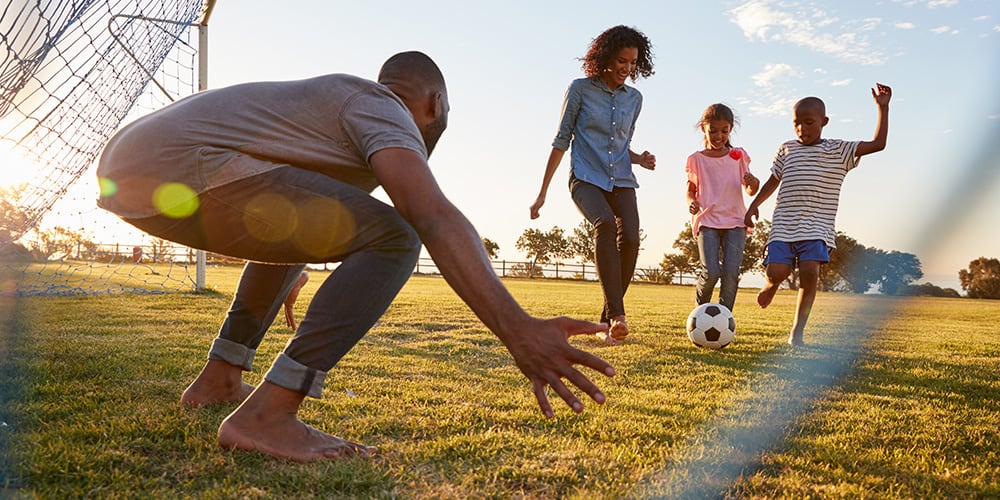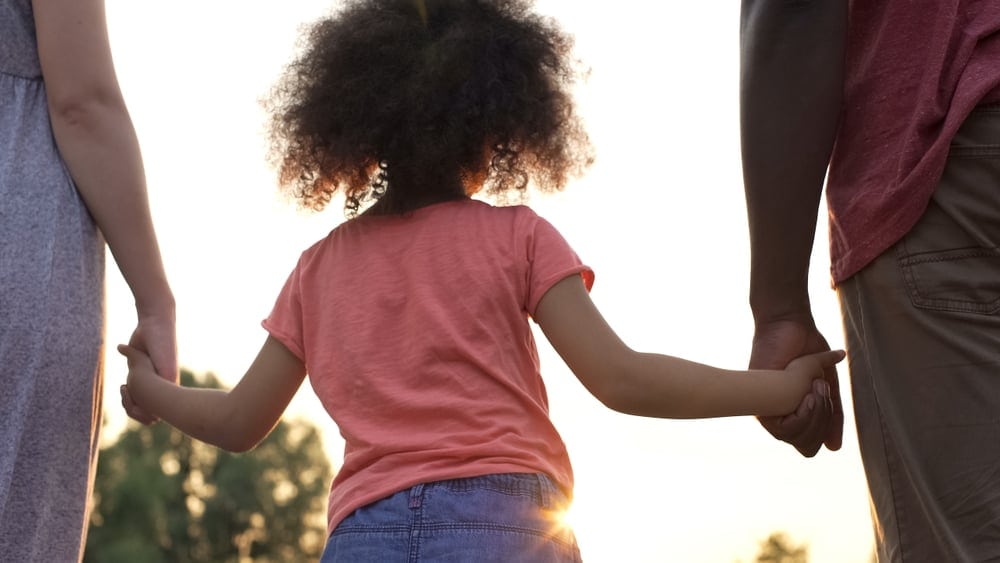If you are a parent, you know this conversation is going to happen. Probably sooner than you think. And it’s a good thing! Getting your adolescent to talk to you – and to know they can continue to talk to you – is crucial at this age. As a single mom of a 13-year-old boy, I learned the importance of honesty and openness from moms who went through it before me. Taking their advice, I opened an ongoing conversation with my son, and I’m so glad I did. Here’s what helped the most.
Update the puberty conversation for Gen A
We may not like it, but our kids are far beyond the idea of bees pollinating flowers and birds having “spring fever.” The first usage of “the birds and the bees” is widely credited to Samuel Taylor Coleridge. Yeah, the guy who wrote “The Rime of the Ancient Mariner” in 1797. More than 225 years later, 60% of our children are exposed to adult content before reaching puberty. As parents of tech-based Gen A kids, if we speak in outdated euphemisms, we’ll absolutely miss the opportunity to connect.
How puberty talks have evolved
Back when I was a preteen, my mom waited until I had my first period before having a very abbreviated conversation about maxi pads, avoiding white pants, and “being a woman now.” She also advised me to leave any situation in which couples were necking. Then she left the room feeling her work was done.
My parental introduction to puberty was confusing and awkward. It wasn’t my mom’s fault. She was conservative when it came to these things, my dad was conveniently in the garage, and I’m not sure parents in the 1980s had access to half the conversation-opening tools and resources we have in the 21st century.
Today, according to Mayo Clinic, most pediatricians recommend talking about sexual health with your kids at age 5. The American Academy of Pediatrics (AAP) offers recommendations for appropriate topics at every stage, starting at ages 0 to 2 years. For instance, as babies begin to talk, the AAP advises parents to call body parts what they are. My pediatrician also encouraged this naming convention from the start, which made the transition into puberty talk a bit smoother.
Taking it slow and keeping it real
It can be super scary to think about diving into “all of it” when you’re just getting used to the idea of your baby growing up. But just as you don’t need to have cute names for body parts or disguise sex and sexuality in terms of garden creatures, you also don’t have to take the conversation beyond what your child is ready for. There will be more than one talk.
Mastering the ‘guy stuff’ with expert help
I grew up with three brothers, so boy stuff wasn’t entirely a mystery. Still, being around young males and being a young male are not remotely the same. I mean, how was I to know what happened and when? Since I didn’t have a co-parent to help with the guy stuff, I forged my way with the help of experts and other parents. Here is what I suggest.

Trust your pediatrician to help
Your child’s sexuality is part of their health, so why not start with the medical professional who is familiar with your child and the health of their body? For our little family of two, Dr. Mary is the best. She somehow manages the perfect blend of competent, traditional physician and caring, proactive partner in my son’s all-around health. Dr. Mary expects old-school manners from my son but is honest and straightforward when discussing bodies, wellness, and sexuality. When I have a question about how to handle something or what comes next, she is happy to offer her professional advice.
Seek out expert advice by yourself
When I want to learn more about any aspect of parenting or child development and health, credible sources like the American Academy of Pediatrics, Mayo Clinic, Lurie Children’s Hospital, and Kids Health are my go-to for relevant, current information. Knowing the guidelines for what is generally appropriate for each age or stage of development is a priceless road map for this new trip you’re about to embark on.
For me, trusted sources also included family members with children older than mine. Other parents seem to be open about the sex talk after it has already happened! Just about everyone told me to be fearlessly open to my son’s questions and appropriately honest in my answers. Some offered this approach because it was the one they took. Others, because they wish they had.
Books can help shape your approach
You can share the books later, but before you even need them, check out books geared at your child’s age and older. Reading books intended for my son:
- Contributed to my own learning. I figured out what was coming next – along with a wealth of unforeseen details!
- Helped me discover my own timeline. I learned what I was ready to share right then and what I would hold off on until a little later.
- Taught me to preview everything I might share. Not all books have the same content or approach, nor should they. By reading ahead, I found some that worked for my situation and some that didn’t.
There is no shortage of great books out there to help you find what works for your family. Among the books that were great for my son from about age 9 to 12 were “Growing Up Great,” by Scott Todnem and “Boy Stuff: The Body Book for Boys,” by Cara Natterson and Micah Player. I loved both books’ approach to puberty as a time for appreciating yourself, taking care of yourself, and understanding what the heck is happening to you. From hygiene and privacy to emotions and safety, these two books helped kick-start our puberty and sexuality talk.
Let your child drive the conversation
This was the most beneficial gem given to me by just about everyone I trusted along the way. Give your child the wheel.
Don’t lecture. They’ll get that in health class. Don’t judge. There’s enough of that in the world. Do listen. Do answer with your heart, mind, experience, and love. It will not steer you wrong. Most importantly, it won’t steer your child wrong.
According to the American College of Obstetricians and Gynecologists (ACOG), studies have shown that medically accurate, evidence-based, age-appropriate sexual education reduces the rates of sexual activity, sexual risk behaviors, sexually transmitted infections and adolescent pregnancy. Schools, doctors, and other trusted adults have essential roles in a child’s comprehensive sexuality education – but the foundation begins at home.

The power of listening
I have a friend who is a child and family therapist, and she has helped to school me on a very important skill that I find incredibly challenging: listening to my son without jumping into problem-solving. She reminded me that he is problem-solving for himself by talking to me. If I jump in and take over the conversation, I could be derailing his solution when I think I’m being helpful.
Last night, our family therapist gave us advice about anxiety that perfectly dovetailed with the idea of listening. She drew this continuum on the whiteboard, explaining how “good old nerves” evolve into anxiety when there is no “action” that clears the task. Without an action, “accomplishment” turns into “avoidance.” Let’s put this in the context of the sex talk. If your child comes to you with a burning question, they are taking an action to accomplish their goal of getting an honest, satisfying answer that dispels their confusion. As parents, if we listen all the way through, learn what our child is asking of us, and respond openly and honestly, we’ve just helped them turn potential anxiety into feeling good about themselves and their problem-solving. Way to go, parent!
As a kid, knowing you can talk to your parent opens the door to action and solution. As a parent, it helps to know just how much your honesty, openness, and availability help your child in this way.
Keep the conversation going – it’s worth it
As our kids grow, the conversation will change and grow, too. Because I started the conversation early and answered my son honestly, he approaches me with questions all the time now. And because I know how much it helps him; it’s become easy to be truthful and open. I know some tough questions and tricky answers are still to come, but I’m willing to uphold my end of the bargain and keep our conversation honest.
As I was writing this article tonight, I asked my son what made it difficult to ask that first question. He said it was because, for him, as a kid, it was hard to admit that he thinks about sexuality or that he’s changing. When I asked him why he asked me about it anyway, he said, “If I didn’t, I’d still be thinking about it, but it’d be bottled up and confusing.” I asked, “If I wasn’t honest with you, would you still ask me questions?” He didn’t hesitate to answer, “Nope.” I couldn’t imagine him having to hold these things back from me or find the answers elsewhere.
I am thankful to all the people, resources, and authors who never made me feel alone and helped me get the conversation started.






